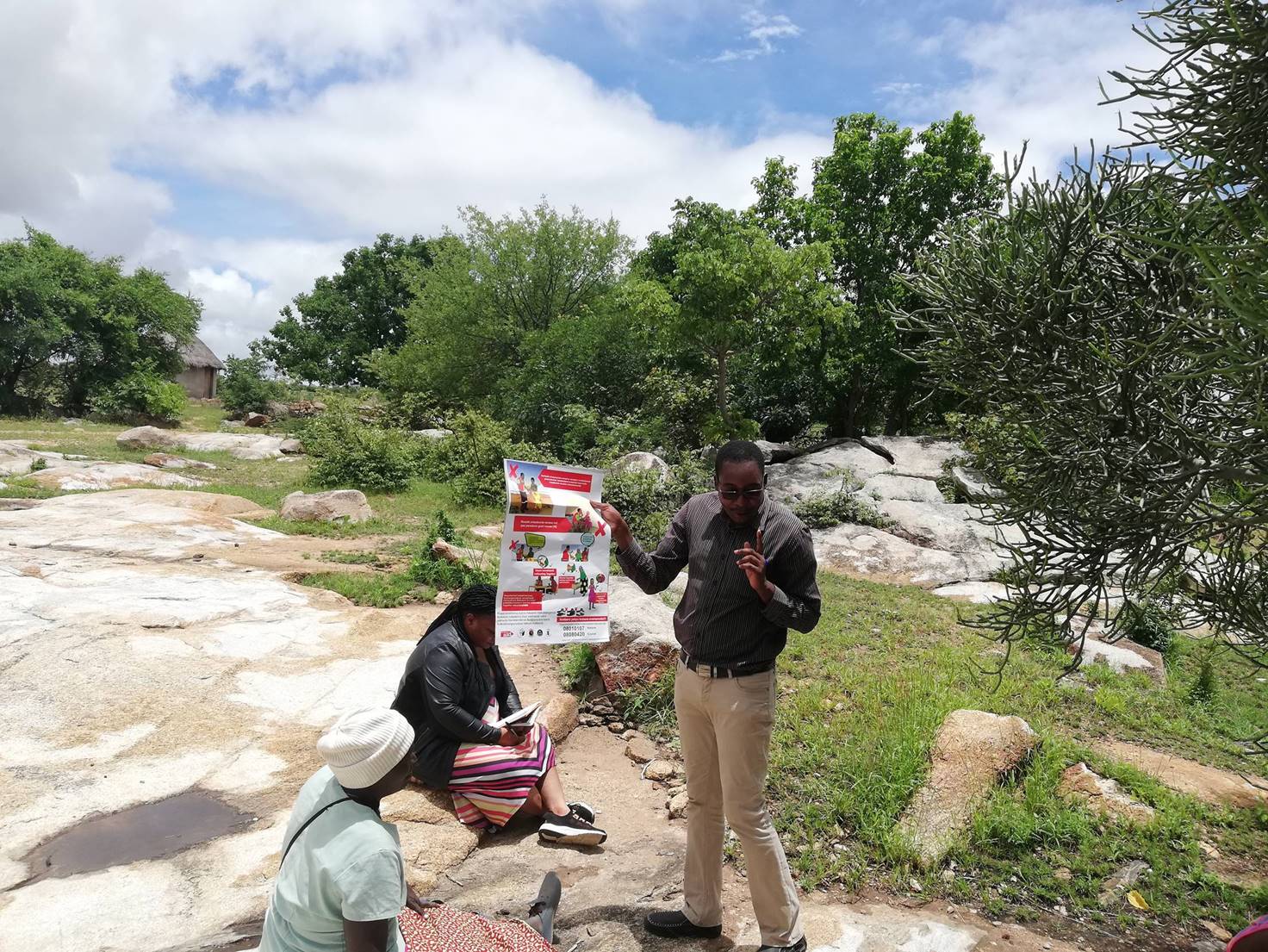CHS story of change: Christian Aid’s commitment to good people management (Commitment 8)
In the run up to the launch of the Humanitarian Accountability Report 2020, we have spoken to different organisations who have achieved certification against the Core Humanitarian Standard (CHS), to learn more about how this process is driving changes in policy and programmes. And ultimately, how it is helping aid work better for the people affected by crisis.
Here, CHS Alliance member Christian Aid shares insights into what they are doing to meet Commitment 8 of the CHS which states that communities and people affected by crisis receive the assistance they require from competent and well-managed staff and volunteers.

Apolestic Women Empowerment Trust officer showing ICE materials in Zimbabwe.
Christian Aid was an early adopter of humanitarian certification, having been certified against the HAP International standard ten years ago and subsequently against its successor – the Core Humanitarian Standard (CHS).
They are committed to verification for several reasons, explains Head of Humanitarian Division, Nick Guttmann. Certification provides the opportunity for someone external to show that they are delivering on the CHS. It also puts all humanitarian organisations on a level playing field and allows national and international NGOs to be judged together, by the same standard.
Christian Aid’s initial CHS audit, conducted by HQAI in 2015, identified some weaknesses relating to Commitment 8: Communities and people affected by crisis receive the assistance they require from competent and well-managed staff and volunteers.
Specifically, Codes of Conduct were not systematically in place for Christian Aid staff and volunteers, nor for partner organisations. While a training module was developed for all staff, to be repeated annually, the finding on partnership agreements generated lots of internal discussion on how to roll this out.
The mid-term audit took place at the time when the sector’s safeguarding scandals hit, and these two factors proved a real catalyst for change. The organisation began stipulating Codes of Conduct in all Partnership Agreements. As Nick says, “internal changes take time and the stick of the audit helped hugely.” Partners were supported to develop their own Code of Conducts, with minimum requirements on PSEA and financial systems, to ensure this was not simply a tick box exercise.
One of the positive impacts of this change was that partner organisations started having conversations with affected communities about the behaviours they should expect from aid workers. This in turn led to Christian Aid receiving more feedback from communities via their complaints mechanism.
Christian Aid encourages others go through this process. Nick says, “Certification provides a strong organisational push to make sure change happens, and it makes you more accountable to affected populations.” And he stresses that in addition to specific technical issues that the audit picks up, “measuring yourself against the Nine Commitments of the CHS can drive big strategic shifts that really put people at the centre.”
The Humanitarian Accountability Report (HAR) 2020 will highlight eight more stories of CHS change, as well as providing an evidence-based overview of how accountable the aid sector is today. To attend the virtual HAR 2020 launch event and be one of the first to access the report’s results, sign up to the free virtual Global CHS Exchange, 6-8 October 2020.
